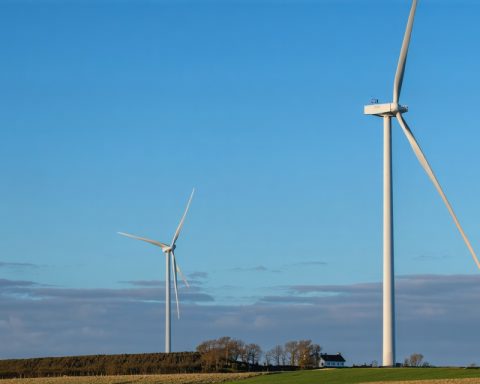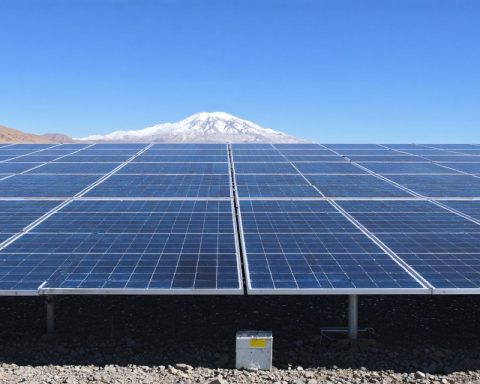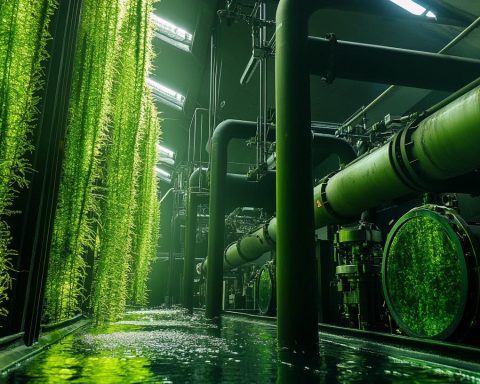In a surprising move that shifts the future of green energy, a prominent Australian minerals firm has decided to pause its ambitious hydrogen initiative in Prince George, British Columbia. This decision by Fortescue could have a significant impact on B.C.’s aspirations to lead in low-emission fuel production.
The Coyote Hydrogen Project, poised to be one of Canada’s largest hydrogen facilities, was a centerpiece in the province’s plan to ramp up hydrogen production. The project promised immense environmental benefits by utilizing renewable energy to produce “green hydrogen,” often hailed as a sustainable alternative to fossil fuels. Yet, Fortescue’s letter disclosed that the project is presently deemed financially unviable due to power inadequacies.
The power requirements were indeed substantial. The proposed plant would need almost an entire Site C dam’s worth of hydropower—enough to supply 450,000 homes annually. This bottleneck in affordable energy made the endeavor economically challenging. Despite the hiccup, Fortescue remains committed to exploring similar ventures across the globe, including in countries with more favorable energy conditions.
Local leaders remain hopeful. Prince George Mayor Simon Yu sees potential in the area hosting a hydrogen hub in the future. The town’s strategic location and skilled workforce provide a strong foundation. Optimism persists that, with an increase in renewable power, the region can still achieve its hydrogen ambitions.
For British Columbia, this halt emphasizes the urgent need to boost renewable energy capacity, aligning with its ambition to become a hydrogen powerhouse by 2050. With rising energy demands, the spotlight is now on B.C. Hydro to fortify the grid, ensuring future projects succeed in this evolving energy landscape.
The Unexpected Energy Dilemma: Why Hydrogen’s Potential Faces Challenges in Canada
In recent developments, the hydrogen energy sector in Canada faces significant hurdles, particularly with the delay of Fortescue’s Coyote Hydrogen Project in Prince George, British Columbia. This situation underscores broader obstacles that could influence not just Canada but global approaches to green energy transitions.
Why Is Hydrogen So Promising?
Hydrogen is seen as a critical player in the future of clean energy because it emits only water when used as a fuel. Produced using renewable energy, “green hydrogen” has the potential to decarbonize industries that are challenging to electrify. Industries such as steel production and long-haul transport could greatly benefit from hydrogen, leading to widespread reductions in carbon emissions.
The Energy Equation: A Global Conundrum
The challenge faced by the Coyote Project is not unique. One key issue is the immense energy demand required to produce green hydrogen effectively. As seen in the Prince George case, the energy needed was on a scale comparable to the Site C dam’s output—demonstrating that even regions with significant renewable resources may struggle to meet such demands. For countries seeking to integrate green hydrogen into their energy portfolios, the question becomes: How do we sufficiently scale up our renewable energy production to meet these needs?
Strategic Approaches for Overcoming Challenges
Several strategies may offer solutions for overcoming these significant energy demands:
1. Investment in Energy Infrastructure: Countries can address the energy supply issue by investing in broader renewable energy sources and enhancing grid infrastructure. Increased investments would support burgeoning hydrogen projects and potentially reduce overall costs.
2. International Collaboration: Foreign partnerships might provide the financial and technical support needed to grow domestic capacities. Countries with complementary resources can partner to advance hydrogen technology more efficiently.
3. Technological Innovations: Innovations in hydrogen production technologies, such as improving electrolyzers’ efficiency, could reduce the energy necessary, making projects more economically viable.
Controversies and Balancing Acts
As hydrogen gains prominence, several controversies arise—particularly concerning land use, biodiversity, and the balance between energy projects and indigenous rights. For instance, large-scale renewable energy projects might infringe upon indigenous territories or disrupt local ecosystems. These controversies invite important discussions: How do we ensure that the pursuit of clean energy doesn’t come at the cost of other critical societal and environmental factors?
What Does the Future Hold?
If these energy and infrastructure challenges can be addressed, the potential for hydrogen as a cornerstone of clean energy remains promising. Communities like Prince George may yet become vital hubs in the hydrogen economy, delivering economic benefits while contributing to global carbon reduction goals.
For further reading on hydrogen projects and sustainable energy solutions, consider visiting energy.gov or exploring the innovations tackled by Fortescue at fmgl.com.au.















